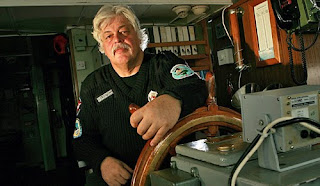National Vegetarian Week, 28 September - 4 October 2009An impressive line-up of celebrities are supporting the third annual National Vegetarian Week by making a 'Pledge to Try Veg' to boost awareness of the effect of meat consumption on our health and the environment, and to raise vital funds to help save the Great Barrier Reef from destruction due to climate change.
Cricket legend Brett Lee, world surfing champion Stephanie Gilmore and head of the United Nations Intergovernmental Panel on Climate Change, Dr Rajendra Pachauri are among those who have made a pledge to support National Vegetarian Week, with television and radio personality Sami Lukis leading the charge as this year's campaign ambassador.
Pledge to Try Veg is the theme of this year's National Vegetarian Week (28 September - 4 October 2009) and Australians are encouraged to make a pledge either to try a plant-based meal, increase their plant based meals or commit to eating vegetarian for the week by visiting
www.vegetarianweek.com.au. For every pledge, one dollar will be donated to the Great Barrier Reef Foundationi to help fund research into protecting the national icon and tourism drawcard from environmental threats such as rising water temperatures and water acidification. If left unchecked, such issues could cause major problems such as coral bleaching and damage to reef ecosystems.
Sami Lukis, a vegetarian since the age of nine, said the purpose of National Vegetarian Week is to demonstrate that eating too much meat may have an impact on our health and a very real impact on the environment, and to inspire people to make small adjustments to their diet.
"We are not asking people to make a complete switch to a meat-free diet. Rather, we are encouraging them to consider how they can make a difference globally and within the skin they're in, by eating more vegetarian meals. We need as many people as possible to make a pledge so we can help save our Reef, one of the seven natural wonders of the world and improve everyone's health," said Ms Lukis.
According to new Newspoll research commissioned by Sanitarium Health Food Company, seven out of 10 Australians are now eating plant-based meals. The national survey of 1200 adults also showed a continuing trend in the belief that eating less meat and more plant-based foods improves overall health.
Sanitarium Accredited Practising Dietitian, Angela Saunders, said, "Including more plant based foods provides a number of health benefits including protection from common lifestyle diseases such as heart disease, high blood pressure, diabetes and some cancers."
"People on plant-based diets eat more fruits, vegetables, grains and legumes which are naturally low in fat, and so manage their weight more easily. These foods also contribute more fibre, helping us feel full and reducing the need for snacking," she added.
Part of National Vegetarian Week this year is to also raise awareness of how meat production negatively impacts the environment.
Livestock activity such as agriculture involving cattle and sheep is responsible for more than a third of all human-produced methane, a greenhouse gas more potent than carbon dioxide. While methane breaks down in less than 20 years, carbon dioxide stays around for 100 years or more. Cutting carbon dioxide emissions will have no effect on global warming for decades, but reducing methane by restricting our meat intake will make a difference very quickly.
For more information visit:
www.vegetarianweek.com.au












































